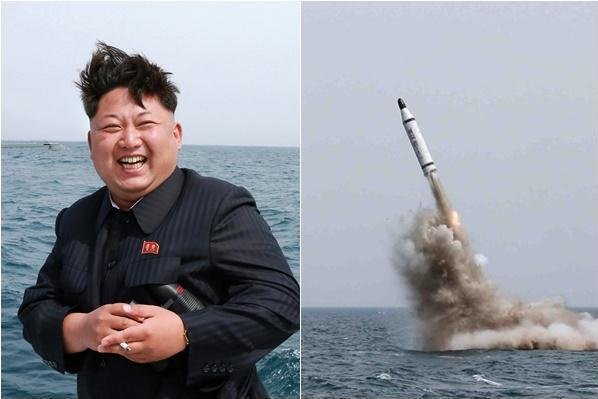Japan and South Korea are making swift progress in finalizing a military information-sharing agreement that would improve Seoul’s surveillance of North Korea’s submarine-launched ballistic missiles. File photo by Rodong Sinmun
SEOUL, Nov. 9 (UPI) -- Japan and South Korea agreed to hold a third round of talks on a military intelligence sharing deal after holding a second dialogue on the Japan-Korea GSOMIA agreement.
According to Seoul's defense ministry, the two sides agreed on key points focusing on sharing classified military information, document transmission and destruction methods, as well as dispute resolution and countermeasures against losses.
Both countries have become concerned in the wake of North Korea's increased provocations in 2016. Pyongyang conducted two nuclear tests this year and test-fired dozens of ballistic missiles.
In August, Japan failed to intercept an incoming North Korea test missile that landed in Japanese territorial waters.
Japan and South Korea have agreed so far to not disclose third-party information without the written consent of the information provider, to limit information sharing among appointed government officials, and inform the other party immediately if information is leaked or damaged, Yonhap reported.
South Korea is also expected to gain access to intelligence on North Korean nuclear weapons and missiles gathered by Japan's surveillance satellite and Aegis-equipped destroyers, according to local newspaper Seoul Daily.
A defense ministry official told Yonhap the negotiations are making rapid progress because the text of the agreement has not changed significantly since 2012, when Seoul and Tokyo began talks.
Negotiations broke down due to public opposition to the agreement in South Korea.
On Tuesday, Defense Minister Han Min-koo told South Korean lawmakers the deal would also allow improvements in Seoul's surveillance of North Korea's submarine-launched ballistic missiles, adding it would be a security and military advantage, according to Yonhap.
Tokyo and Seoul may conclude the deal as early as mid-November, reports say.















